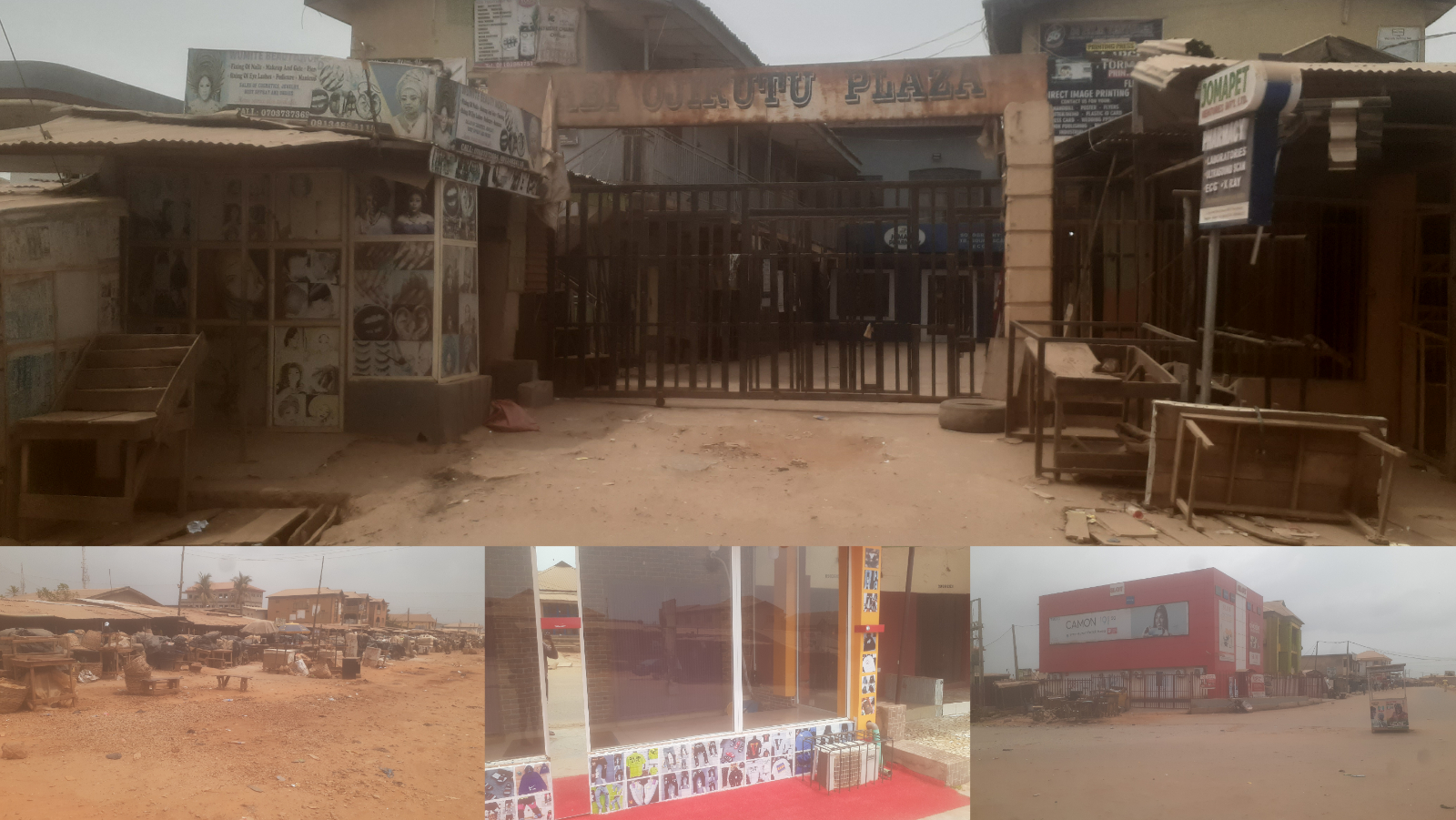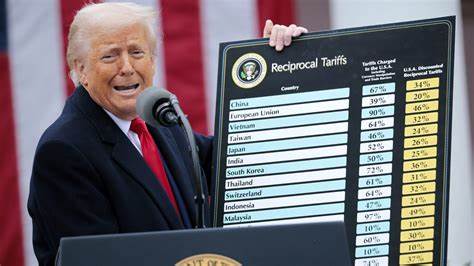“So Alagbole can be this dry,” is what a customer said out loud on Saturday afternoon when she visited the Alagbole market, hoping to make a purchase.
Alagbole bus-stop, located in the area of Ifo Local Government, Ogun State, is a congested area where residents literally collide during movement – because every hour in Alagbole is rush hour.
Join our WhatsApp ChannelSo, walking around the market without having to brush shoulders with other passersby, due to the distance between you and the next person on the road is half a mile.
The area looks deserted, almost as if people in Alagbole were chased out, with shops shut and markets overtaken by chickens, goats and dogs.
Prime Business Africa understands that the area looks abandoned because small business owners have gone to perform their civic duty: vote for their preferable President between Peter Obi, Atiku Abubakar, and Bola Tinubu.
Saturday is a peak period for the small business owners in that area, however, they sacrificed earnings to go vote for the presidential candidate whose policies could strengthen or impede their business growth.
Obi, Atiku and Tinubu have rolled out their plans for small businesses to sway voters from the SME sector, which accounts for 48 per cent of the Gross Domestic Product (GDP), 96 per cent of businesses operating in Nigeria and 84 per cent of employment, according to a PricewaterhouseCoopers report.
With the demise of over 1 million SMEs since 2017 due to bad policies that caused an economic downturn, voting for the president with the right SME policies is very crucial.
To tap into the over 30 million micro, small and medium enterprises (MSMEs) operating in Nigeria and gain their votes, Obi, Tinubu and Atiku promised the most vital component of running a business; increase access to finance.
In Nigeria, micro, small and medium businesses have often bootstrapped to keep their enterprises afloat, as banks demand an arm and a leg before approving loans to them.
There have always been complaints that banks often ignore small business owners in loan distribution, favouring bigger firms.
The presidential candidates have committed to increasing credit access for the MSMEs in a bid to support their growth, considering the role of the SME sector in Nigeria’s GDP.
Speaking on his plan for the small business sector, Obi said if voted in, he will not only expand credit access but will also create hubs that focus on the growth of SMEs, as well as push legislation in favour of small business owners.
“We will prioritize the development of MSMEs through a boutique of incentives which include new structures, new capital access, new legislation to support small business growth and strategic centres of excellence for small businesses such as Enterprise Hubs, Business Incubators and MSME Industrial clusters across all the geopolitical zones,” Obi wrote in his manifesto.
The Labour Party candidate also stated: “We will develop 100,000 mini-grids across the country by end 2024 which will provide reliable power supply for up to 750,000 rural SMEs; provide uninterrupted power supply in all federal universities and university teaching hospitals; support the private sector to deploy 15million solar standalone systems for residential and SMEs use by end of 2025.”
Tinubu shared a similar plan as Obi, disclosing that his administration, if elected, will create programs such as a digital MSME Academy to support their growth, “Recognise and stimulate entrepreneurship by introducing programs designed to help today’s MSMEs grow in size to become tomorrow’s major players.
“We will establish a digital MSME Academy to provide continuous learning opportunities for young entrepreneurs, giving them access to experts and advice on global best practices in order to improve their business development through increasing managerial knowhow, financial management and organisational structure,” the former Lagos State governor said.
Tinubu went on to state: “Introduce new social investment programs supporting the development of micro, small and medium enterprises (MSMEs) particularly among the poor.
“These investment programs will improve business productivity, widen access to affordable finance and capital markets and expand businesses such that beneficiaries can offer employment to others.
“Recipients shall receive high quality, low-cost business development support services. These programs and initiatives will give priority access to persons with disabilities, women and young people.”
Atiku on the other hand, promises to provide attractive investment for 50 million Small and Medium-Scale Enterprises, in order to double Nigeria’s GDP to $900 billion by 2025.
The former vice president proposed a $10 billion stimulus package for the SMEs and declared that: “Our national innovation fund and SME venture capital fund initiatives will provide stable and sustainable long-term support to aspiring entrepreneurs.”
These promises are some of the factors that have driven the market women and small businesses situated in Alagbole to the polls on Saturday, foregoing the day’s profits.


















Follow Us